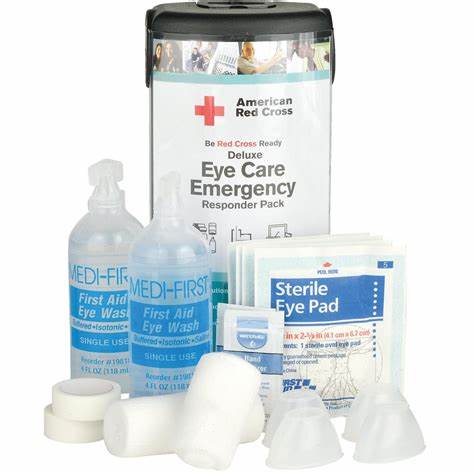This is not a motto that is meant for the Boy Scouts alone. It should be a caution for every family and home. You just never know when an accident might happen. Therefore you should always be prepared!
Research shows some of the most common eye accidents that happen in the home include the following:
• Objects that fall. If you have knick-knacks placed on high shelves, then you have created a potential problem for everyone in the home. It often doesn’t take much to jostle something and send it tumbling, perhaps right into the edge of your eye. You can even scratch your eye with your fingernails causing a corneal abrasion. You will be able to tell if you have scratched your cornea because your eye will be red and watery. Many times corneal abrasions will heal themselves but be prepared to see a doctor if the problem persists.
• Foreign objects. There are dozens of things that can become imbedded in your eye. If that happens you should not try to remove it yourself but go directly to a doctor or emergency room. You can cause greater injury if you try to remove the object on your own.
• Caustic substances. Have you ever accidentally gotten an alkali or acid near your eye or splashed into it? Substances splashed in your eyes can be painful but your eyes will automatically begin to water, helping to get the substance out. However, if there is any evidence of extended damage you should seek professional help.
The Red Cross has put together a list of items you should include in your eyecare kit.
• Begin with the purchase of an eye wash. Eye wash solution is composed of a material that will help to clean out abrasive chemicals that may have seeped into your eyes.
• Include a variety of sizes and thicknesses of gauze. Keep them in sterile condition until such time as they are needed.
• Several sized eye cups should also be included in the kit. These are convex plastic coverings that work with gauze pads to further protect an eye injury.
• Purchase a tiny container in which to keep these items along with the phone number of a local optometrist and emergency medical service (EMS).
Protect your eyes all year long and be prepared in case of an emergency. To learn more about eye care, contact the experts at Island Eyecare.


